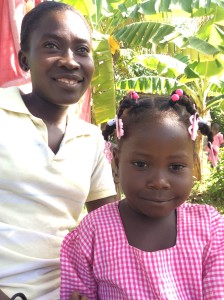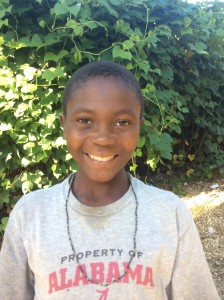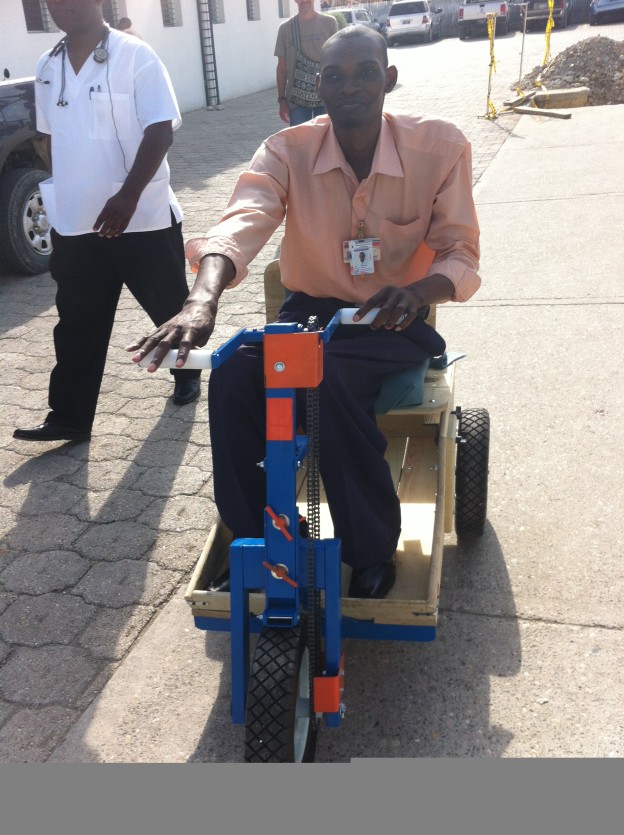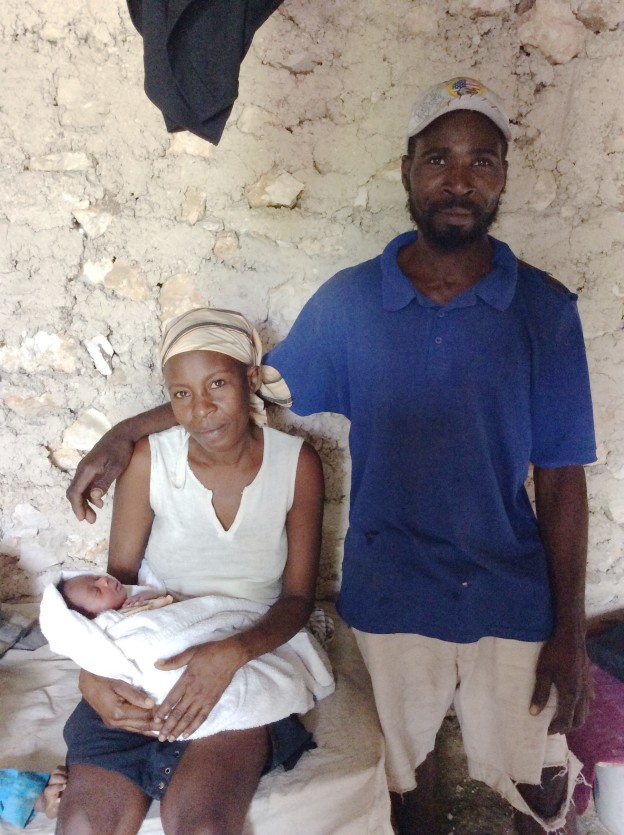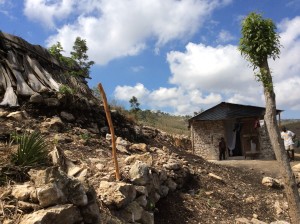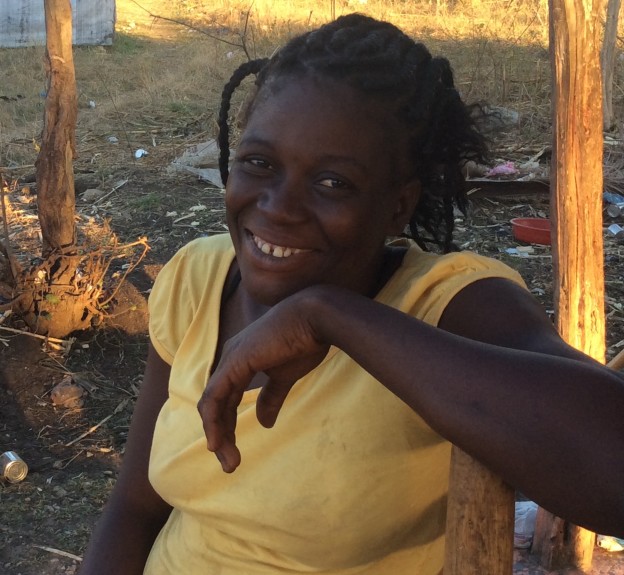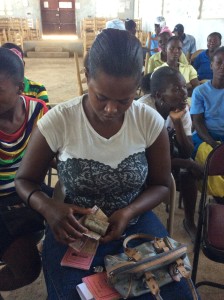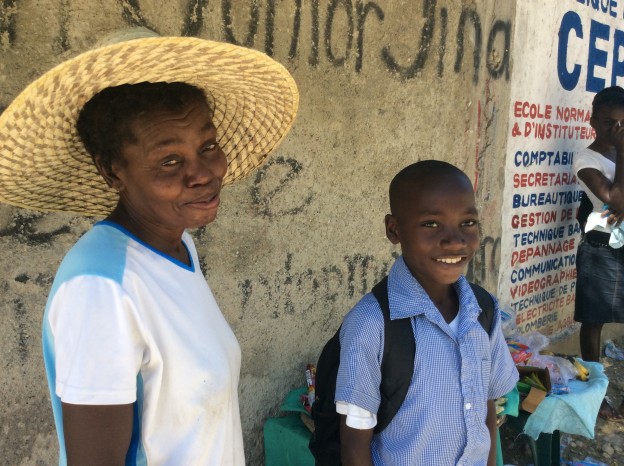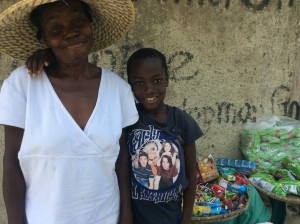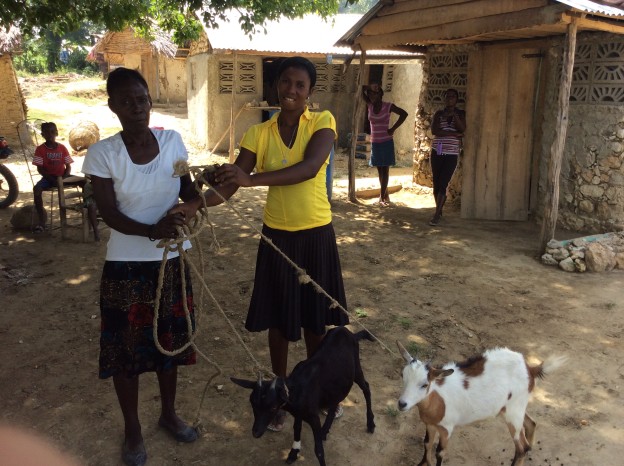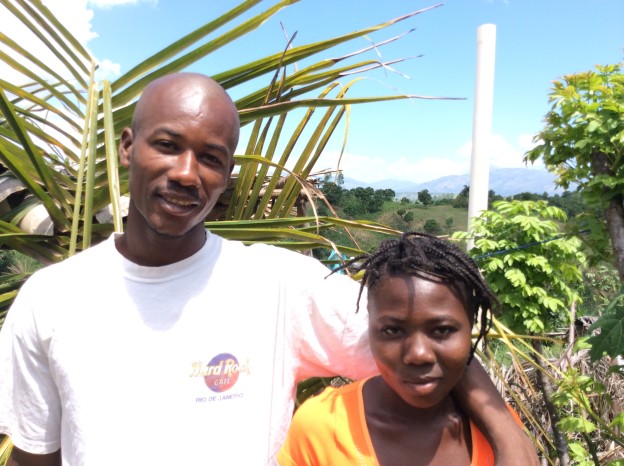The Next Step with Anise
June 1, 2014
It has been encouraging to see how Anise and Mackenson have grow stronger since Mackenson was admitted to the University Hospital that Partners in Health opened in Mirebalais. I wrote about them earlier in the week. (See: http://www.apprenticeshipineducation.com/compliance/.) They still have a long way to go, but the signs are very positive. The sickly, lifeless infant we first brought to the hospital has turned playful and energetic. He still needs to put on some weight, but he’s eating now, and his diarrhea has slowed down, so there is every reason to thing that he will.
And it’s probably not surprising that Anise’s health seems to have improved as her boy’s has. She has been sickly almost since we met her. One of the things that delayed getting her baby to the hospital was the fact that she was too weak to carry him. She would have needed a neighbor or a family member to go to the hospital with her, and she wasn’t able to mobilize anyone. We eventually had our driver and Anise’s case manager, Nerlande, take her and Mackenson to the emergency room. He was admitted, and she has simply stayed there with him.
In their first days in the pediatric ward, she seemed to get worse. She was losing sleep, sitting up all night in an uncomfortable wooden chair next to her baby’s bed. She looked exhausted, and her feet started to swell significantly. One morning when I visited them, I happened to come as the pediatric resident was making her rounds. I asked her whether they had noticed Anise’s feet. The doctor responded that she had, and that they had tried to get Anise to go to the emergency room. They were, she said, worried that it could reflect a heart problem. But when Anise got to the emergency room, and had to wait to be checked in, she grew frustrated, worried about Mackenson, and she returned to the children’s ward. When the emergency staff called for her, she was gone.
The doctor told me the story, and I immediately thanked her and responded that we would see to it that Anise got seen, but that meant finding someone to sit with Mackenson for the time it would take for Anise to get through what are very long lines at the hospital, which is sometimes overwhelmed by the needs it serves. So I contacted Nerlande and another case manager on our team, Hilaire, and we went to Anise’s house to find someone from her family to help her out.
No one was willing to go. Anise and her children have been living with her father, Anice, ever since he got into a conflict with Mackenson’s father, Genson. Anice pressured Anise to come back to live with him, and she complied. But he has been unwell, and didn’t feel strong enough to go to the hospital to stay with his daughter and grandson. The other residents of Anice’s lakou, or yard, are his son, Anès, and Anès’s wife and children. Both of them said they couldn’t go either.
I returned to the hospital that evening, only to find that Anise seemed to be deteriorating. Her feet were continuing to swell. They were misshapen, and she was in pain. Part of the problem was the chair she had been sitting in for several days. The hospital has comfortable lounge chairs, with footrests that can be raised, for family members staying overnight with patients. Anise was entitled to one, but all the ones we could find in her ward were taken. I saw a healthy young man relaxing in one, and I asked him to let Anise use it, pointing to her obvious need.
He refused. He said he was sorry, but didn’t see why he should have to be uncomfortable while everyone else had a nice chair.
I got really angry. I don’t swear in Créole. I think of how silly Haitian young people always seems to me to sound when they swear in English, misusing bad language that they can’t quite pronounce. But I was pretty mad, and I’m afraid I made a little bit of a scene, using words I don’t have a lot of practice with. Fortunately, the other man was willing to swear as well, so the embarrassing scene was not all mine, even if I was probably the only one embarrassed.
The scene, such as it was, achieved three results. First, for the next two days, the man called me a shameless pig every time I walked by him. He then left the hospital with the sick person he had been there with. Second, Anise smiled for the first time since I had gotten her to the hospital. At first, I thought she was simply amused, just as her case manager and the nurses seemed to be. But it eventually became clear that she liked the fact that I was angry on her behalf. Third, and most importantly, as soon as I left, the nurses scrounged up another recliner, which Anise has been in ever since.
But we still needed to find someone to go to the hospital to stay with Mackenson while Anise sought care for herself. Frustrated at our continued failure to mobilize her family, Hilaire started talking to neighbors, saying in his exasperation that we would pay someone willing to go right away. We finally found a woman, helped her make her own childcare arrangements, and then took her to the hospital. She spent two days in the pediatric ward, together with Anise, and Anise got through the hospital’s lines. They couldn’t find much wrong with her – anemia, some kind of minor infection – and as sickly as Anise had first gotten since we first met her, she has been improving markedly.
Meanwhile, we knew we had another problem to help her face. She will not be in the hospital with Mackenson forever. His improvement has been even more rapid than hers. But we could not imagine how she would flourish if she simply returned to the same living situation she had grown sick in in the first place.
We wanted to see whether we could patch things up between her and Genson. His was clearly committed to helping her as the mother of his child, but we were not sure whether he was willing to get back together. We felt that any help he offered would continue to go to waste unless she moved out of her father’s home. We have a lot of evidence that suggests that Anise’s father Anice is a big part of her problem.
Here, things get complicated. We felt that Genson was open to much more than just distant support, but Anise’s position was initially unclear. She was coming to understand that her own family was doing nothing for her. Her only help during her sickness had come from Genson and the CLM team. But her father had told her that if she and Genson got back together he would never speak to her again. And Anise said that her mother, who was living in Port au Prince, working as a housekeeper, agreed with her dad.
So Nerlande called the mother, and it turns out that she was more open than Anise believed. The first positive sign was that she quit her job in Port au Prince the very day she learned of Anise’s situation, and she rushed back to Mirebalais to sit with Anise at the hospital. She explained to us that she had returned home to take care of her child. She also mobilized her older son, Anise’s brother Jean Claude. He is not Anice’s child, but lives just a few hundred feet away. He had been distressed to see her sister’s deteriorating condition, but hadn’t been sure how to interfere between her and her dad.
As soon as his mother said that she was going to take responsibility for Anise, however, he felt entitled to act on his mother’s behalf. He told Nerlande that he wanted us to arrange a meeting between him and Genson, so the four of us sat together one afternoon. His wife, who is Genson’s older sister, was with us as well.
Jean Claude told Genson that he hoped that he and Anise would get back together, and that he and his mother would back them in the face of opposition from Anice.
But Genson hesitated. He reaffirmed his commitment, but was worried about bringing Anise straight into his own home. He was afraid of creating the appearance that he was after the stuff we had given her, which was in Anice’s hands. Madan Jean Claude agreed with her brother’s hesitation, and added that she didn’t think that the time was right for them to get back together. Anise was still too sick to do anything for herself.
The discussion went in circles, until Jean Claude then came up with a compromise. He would give Anise a spot on his land where Genson could build a little house for her. Anise and her mother would move into the new house, and stay there together. Genson would help them out, but would continue to live in the same little shack he built when Anise left him.
That left us with one piece to resolve. Genson and Jean Claude were willing to provide the lumber the house would need, and Genson was ready to do the work. But they needed roofing, and the tin we had given Anise was still on a half-built house in her father’s yard.
So I said that we would come the next day with a team and take responsibility for taking the roofing, along with the livestock we had given Anise, and bring it all to Jean Claude’s house, where Genson would be responsible for it. The two men and Madan Jean Claude all agreed to this proposal. But we all also agreed that we could do nothing without knowing what Anise wanted.
Nerlande went immediately to the hospital to talk to Anise. We couldn’t think of such a plan unless she liked the idea. So Nerlande sat with her and her mother, and they discussed the matter. Anise liked the idea so much that she asked us to bring her to the yard when we sent our team to take her tin roofing. She wanted to clear all her possessions out of her father’s house so that she wouldn’t have to return.
We made our plans to return the next day. We called on a couple of extra case managers. When we walk into a situation of potential conflict, we like to appear in numbers. It is safer for everyone. So there were five of us – four case managers and I – who walked into the yard with Anise, and explained the situation to her father. One of the case managers started to remove the tin. We had invited a skilled builder from the neighborhood to do the work. He’d be faster and better at it than we could be. But we think it is important for us to start the job. That helps remove all responsibility for it from the builder.
Anice was furious. As Anise started collecting her things, he told her that she had to give him her birth certificate. He was finished with her, but he was the one that had given her the birth certificate, so it was his right to take it away. Anise was unsure what to do, but she quickly got the bag with her most important possessions – like her own birth certificate and those of her kids – into Jean Claude’s hands. He whisked them away, and by the time Anice knew what had happened, he was in a losing argument with Jean Claude instead of with Anise.
But he kept on arguing, making a lot of noise. In a sense, it was the best thing that could have happened, because his obvious unreasonableness turned the gathered spectators against him. His son, Anès, eventually came. He is husband to another CLM member and they live in a house they share with Anice. I was worried about what he would think of it all. Whatever his position, we would have to keep working with him on behalf of his wife. But he started arguing with his father on our behalf. We know for a fact that he was part of the conflict with Genson, but whatever the source of that conflict, he appeared to have seen that Anise will be better off with Jean Claude and Genson than with his father and himself.
So we are pleased with the way things are turning out. We believe in Genson’s goodwill and his capacity to help Anise start moving forward again, and we think that they have strong and reliable allies in Jean Claude and his wife.
In a sense, we are now more worried about Anès and his wife. If we are to help them – and they are struggling very badly, too – we will have to continue to deal with Anice. We will have to either repair the damage we’ve done to our relationship with him or at least reduced his ability to get in his family’s way.
